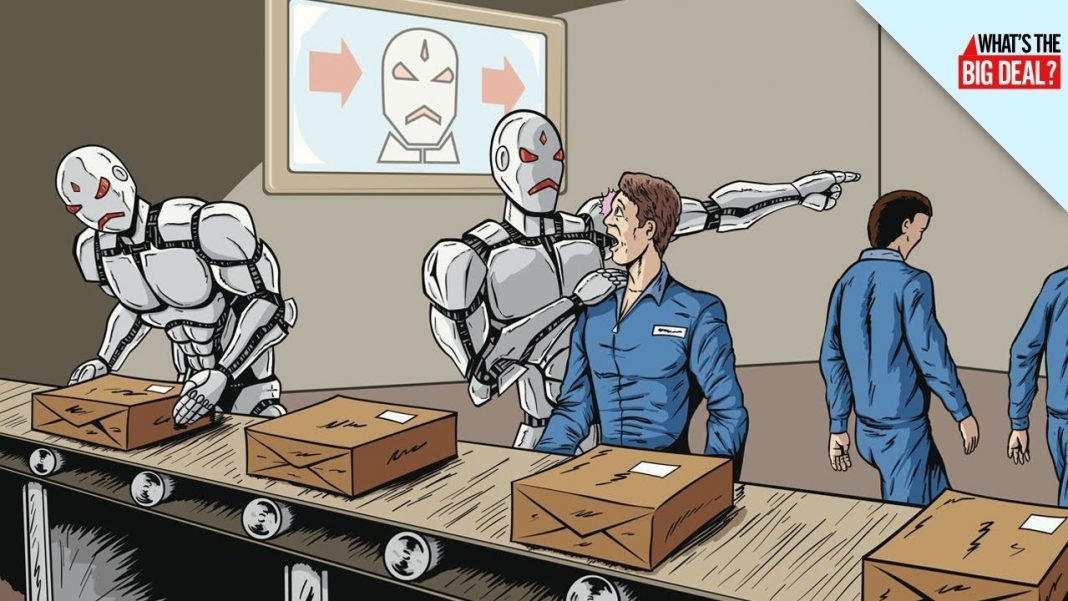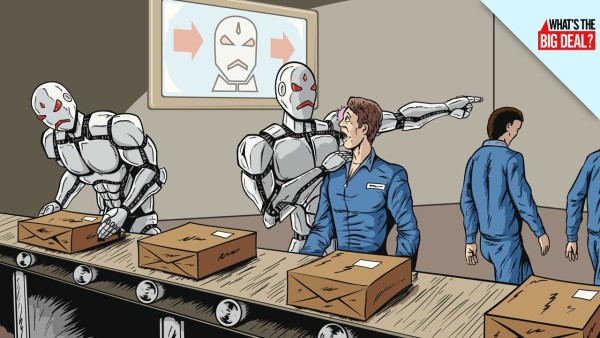
 Robots will soon take over the world, and it’s not because of Skynet. There could eventually come a time when many menial jobs will be taken over by robots, anthropomorphic or otherwise. But is it a good thing? Especially in the current state of the economy where many people are without jobs. Announce this now and riots could ensue. The Japanese don’t feel the same way, though. While most people worry that robots will take away their jobs, Japan welcomes them.
Robots will soon take over the world, and it’s not because of Skynet. There could eventually come a time when many menial jobs will be taken over by robots, anthropomorphic or otherwise. But is it a good thing? Especially in the current state of the economy where many people are without jobs. Announce this now and riots could ensue. The Japanese don’t feel the same way, though. While most people worry that robots will take away their jobs, Japan welcomes them.
In Japan, there are already robotic bartenders, robotic receptionists, robotic teachers and even robotic bellhops. Some of them are built to be like humans but look terribly uncanny to the point of creepy. Remember creepy baby which was built to be practiced on by pediatric students and professionals? With further advances in robotics, Japan could replace about 50 percent of the most common jobs with automation in the next 10 to 20 years according to a study of the Nomura Research Institute (NRI). Yes, the Japanese can be weird when it comes to some things like not feeling threatened when robots are about to take their jobs. But whether or not all the Japanese are unanimous in welcoming more artificial workers, they are prone to the problem of a shrinking labor force due to a shrinking population. It’s not because of all the giant monsters running around. Japan has a low birth rate, and twenty-five percent of the population are senior citizens. They already started a program to increase the number of foreign workers from neighboring countries to complement the workforce. But in the long run, instead of importing more foreign workers, Japan can instead increase automation.
Robots replacing humans in the workplace has long been the trope of science fiction. If you remember Tetsuwan Atomu, better known as Astroboy, the series often discusses the problems of a mixed society of humans and robots with robots at the receiving end of hate and discrimination by humans. It’s a bit different in Will Smith’s I, Robot where society became much more accepting of a robotic workforce, that is until they went crazy. Whether such a thing will happen is unsure, but workers do set up picket lines when factories announce an automation program. Animosity towards machines manifests especially when human livelihood is threatened. But automation is inevitable especially if it can increase profits as well as help companies cope with increased product demand.
Robots are already present in many assembly lines around the world especially in the automotive industry, but they only replaced simple jobs and humans are still around for tasks that require more skill and judgement. Other instances robots replacing humans at work include aerial news coverage where drones are sent to check out traffic situations replacing a cameraman onboard a helicopter; air strikes wherein fighter pilots are spared from dangerous missions by drones and lastly, Amazon’s upcoming drone delivery service wherein delivery men won’t be needed for short-distance deliveries. If Amazon’s plan works out, fast food could follow suit which would make delivery guys shake in their boots.
But robots can’t take all the jobs, or there will be hardly anything left for humans to do. Without paid work, there will hardly be an economy. A good economy requires a good number of employed individuals to purchase products and services to keep the money rolling. Robots can assist at work but cannot completely take over. Also, robots need to be manufactured as well and should more robots be required; the more people are needed to build them.
“Look at all these little things! So busy now! Notice how each one is useful. A lovely ballet ensues, so full of form and color. Now, think about all those people that created them. Technicians, engineers, hundreds of people, who will be able to feed their children tonight, so those children can grow up big and strong and have little teeny children of their own, and so on and so forth. Thus, adding to the great chain of life…”
–Jean-Baptiste Emmanuel Zorg, The Fifth Element
The previous quote pretty much sums it up. There’s also that bit in Johnny Depp’s Charlie and the Chocolate Factory where Charlie’s dad got fired because of a new robot that twists toothpaste tube caps only to be hired back as the maintenance guy for the same robot. Humans are still best at what we do, and the best way to avoid getting usurped by metal and silicon is to learn multiple skills and to be good at them.
“The future of air combat… Is it manned, or unmanned? I’ll tell you in my experience; no unmanned aerial vehicle will ever trump a pilot’s instinct.”
–James Rhodes, Iron Man (2008)
Then there are jobs that we really need robots for. Jobs too dangerous for humans to do. If you’ll remember Yamaha’s motorcycle riding robot whose goal is to record various motorcycle riding conditions for safety. This robot will be the one to take a spill instead of an actual rider. Instead of actual astronauts on a one-way trip, the Mars rover is the one roaming the red planet and taking readings. There are also more and more robots used for rescue and bomb disposal. They can take those jobs any time.

